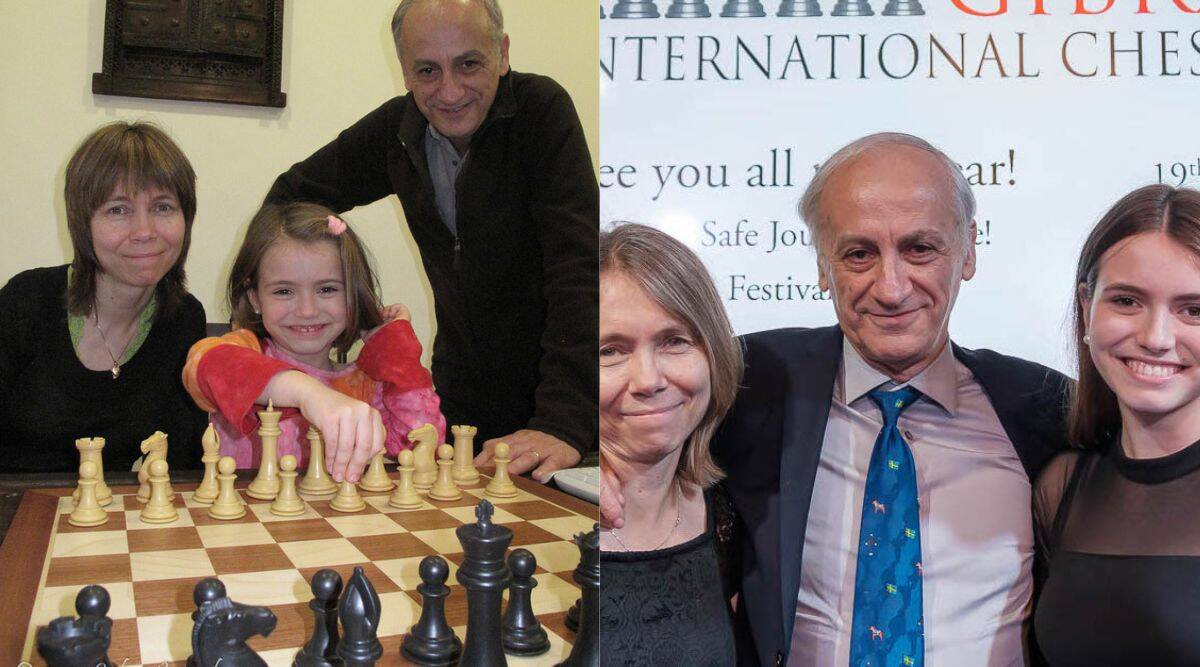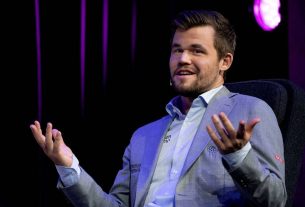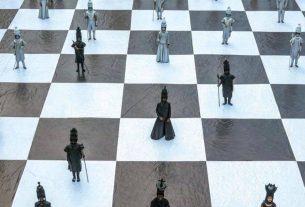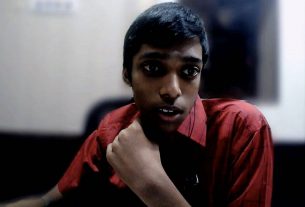As a toddler, popular chess streamer Anna used to travel with her mother Pia Cramling Bellon to tournaments; her father Jaun Bellon Lopez is also a GM.
Thank you for reading this post, don't forget to subscribe!Shared News: August 13, 2022 7:18:41 am
The first time Swedish Grandmaster Pia Cramling Bellon took her daughter Anna to a chess tournament was when she was around three months of age.
The first time Swedish Grandmaster Pia Cramling Bellon took her daughter Anna to a chess tournament was when she was around three months of age. She had not competed for the entire duration of her pregnancy and as soon as she recovered, she returned to the familiar tunes of the chess circuit. “Those were my active days and I desperately wanted to get back into the circuit,” Pia recollects.
There was no one to baby-sit, except for her father who had to come from Sweden while they were living in Spain. “So I would take her to tournaments. She was a nice girl and would mostly sleep during my games,” she recollects.
When she got older, she would sit on her lap as Pia sat contemplating her moves. Anna would peer curiously at the pieces. At the next stage, she would run all around the venue with her cartoon books. Years rolled on in a blur and Anna is now 21, but still accompanying her mother, now as a teammate though.
Pia winning a gold medal on board one made the Olympiad a memorable outing for the family. It was a destiny Anna could not escape, not when your parents are both grandmasters. Her father Juan Manuel Bellon Lopez, now the Swedish team captain, was one of Spain’s finest players with a peak rating of 2510. Add that to Pia’s peak of 2550 and Anna’s 2065, the Bellon household has a combined ELO rating of 7125 points. Only the Polgar household could perhaps come close.
You could imagine how their house could be —score sheets flying around, thick chess books splattered around, the parents and daughter debating the possibilities of an opening at teatime, dissecting games for lunch, conversing in purely chess diction and sleeping with a chess board beside their pillow.
Anna bursts into peels of laughter: “No, no I know how you imagine it to be, how most imagine it to be. But it’s not like that. We are like any other normal family, doing things that a normal family would. At home, we barely discuss chess or our games. Not like we don’t speak chess at all, but mostly it’s other stuff, the routine household talks,” she says, still laughing.
The game, though, is the centre of the universe. When she was young, Anna tried to escape chess, but simply could not. “I never wanted to be a chess player. I learned the game when I was quite young, obviously, but did not set my eyes on becoming a competitive chess player then. Everything flowed organically. My parents never put any pressure on me. They simply let me be on my own,” she says.
But the world outside saw her as the would-be Grandmaster of a Grandmaster couple. Sometimes, perfect strangers would stop her and ask whether she has become a Grandmaster or not. “It was more people from outside who thought that I should become a grandmaster because my parents too were. I understand that, doctor’s children are expected to be doctors, like that.” she says.
Even if Anna tried to escape chess, chess would not escape Anna. Often, she would be travelling with them during the tournaments because she did not like staying at home alone, moving around in the close-knit chess community and talking to chess players, most of whom were her parents’ friends or like an extended family. “Most of my childhood memories are related to chess only, cities, hotels, venues, chess players,” Anna chimes in.
But the more she played and watched, the deeper she began to love the game. And she conveyed it to her parents. “She made all the choices on her own, though we were extremely happy when she developed the same passion as we have. All we did was we guided her, like the senior teammates would a youngster. We imposed no pressure at all, but somehow or other we knew that she would become a chess player. We could see that she was really enjoying the game, and we were clearly delighted,” Pia says.
She did not have to browse for chess clubs or coaches. Whatever mentoring she needed, she just needed to yell out papa or mama. Her style, Pia says, is closer to her father. Free-spirited and aggressive. The openings are closer to her mother, who is more of a positional player. “She is not that tactical, but can be extremely good positionally,” Pia reckons.
These days, though they travel together, they are in their own world. Anna has carved a parallel career as a chess streamer with millions of fans while her parents are more into coaching and guiding. They hardly walk bunched together at a venue. But their universe still revolves around chess.




